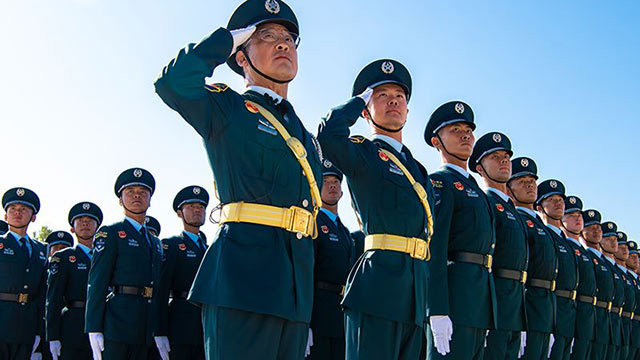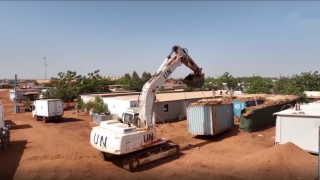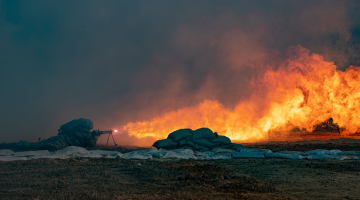By Shu Meng
Many places in Iran have suffered a series of attacks recently. The targets of the attacks include military factories and other important military facilities. These attacks reflect the complex diplomatic situation and security pressure facing Iran, as well as the complexity and sensitivity of the situation in the Middle East.
The mastermind behind these attacks has yet to be determined. However, some analysts point out that the US and Israel should be responsible for the series of attacks. Considering the US and Israel's stances on Iran, it is reasonable to take the two as suspects. The US had taken various actions in order to deter Iran. This round of attacks was mainly carried out by drones, and the backdrop is the failed negotiations on the Iran nuclear deal and Iran's supply of weapons to Russia. The attacks send a clear signal of warning. In addition, US Secretary of State Antony Blinken said a few days ago that the possibility of taking military action to prevent Iran from acquiring nuclear weapons cannot be ruled out. This round of attacks happened just as Blinken was visiting Israel. In order to hinder the negotiation process of the Iran nuclear deal and curb the development of Iran's nuclear weapons and defense industry, Israel has sufficient motives to launch such attacks. Moreover, Israel's stance on Iran has become tougher after Benjamin Netanyahu regained power at the end of last year.
Currently, Iran is facing increasing external pressure, which has a lot to do with the Russia-Ukraine conflict. Previously, some Western countries believed that the negotiation of the Iran nuclear deal was an effective way to prevent Iran from developing nuclear weapons. After the outbreak of the Russia-Ukraine conflict, the focus of the West shifted from preventing Iran from possessing nuclear weapons to dealing with Russia, which brought room for relaxation of the Iranian nuclear issue to a certain extent. However, Iran sold drones and other weapons to Russia, and these drones were used on the Ukrainian battlefield. This has put Iran completely on the opposite side of the West. Therefore, putting tough pressure on Iran and weakening its willingness and capability to support Russia has become an important option for Western countries.
Iran may take some retaliation in response after this round of attacks. However, due to the limited actual losses and the gap in military strength compared with the US and Israel, its retaliation may be carried out by foiling espionage activities instead of large-scale military retaliation. Even so, the impact of this round of attacks on the regional situation should not be underestimated.
The prospects for the Iran nuclear deal negotiations are bleak. The relevant parties to the Iran nuclear deal held multiple rounds of negotiations on and off since April 2021 and repeatedly claimed progress made. In August 2022, the European Union submitted to the negotiating parties a "final text" to revive the 2015 Iran nuclear deal. However, after the US and Iran exchanged written opinions on this text, the negotiation process began to stall. This round of attacks may arouse anti-America sentiment in Iran and worsen the relationship between Iran and the West. The resumption of the negotiations on the Iran nuclear deal will be more difficult because of the tough attitude of the US and Israel's "fueling the flames" actions.
The situation in the Middle East will become increasingly intense. After this round of attacks, the pressure on Iran has become more prominent, and tensions with Israel and Arab countries may intensify. The US is promoting the establishment of an alliance system against Iran in the Middle East, which will further lead to confrontation among regional camps. In addition, Iran's high-profile support for Palestine has also added variables to the regional situation. In this context, Middle Eastern countries will continue to contest for ideological and regional dominance, and the process of "turning chaos into governance" in the Middle East will be long and difficult.











